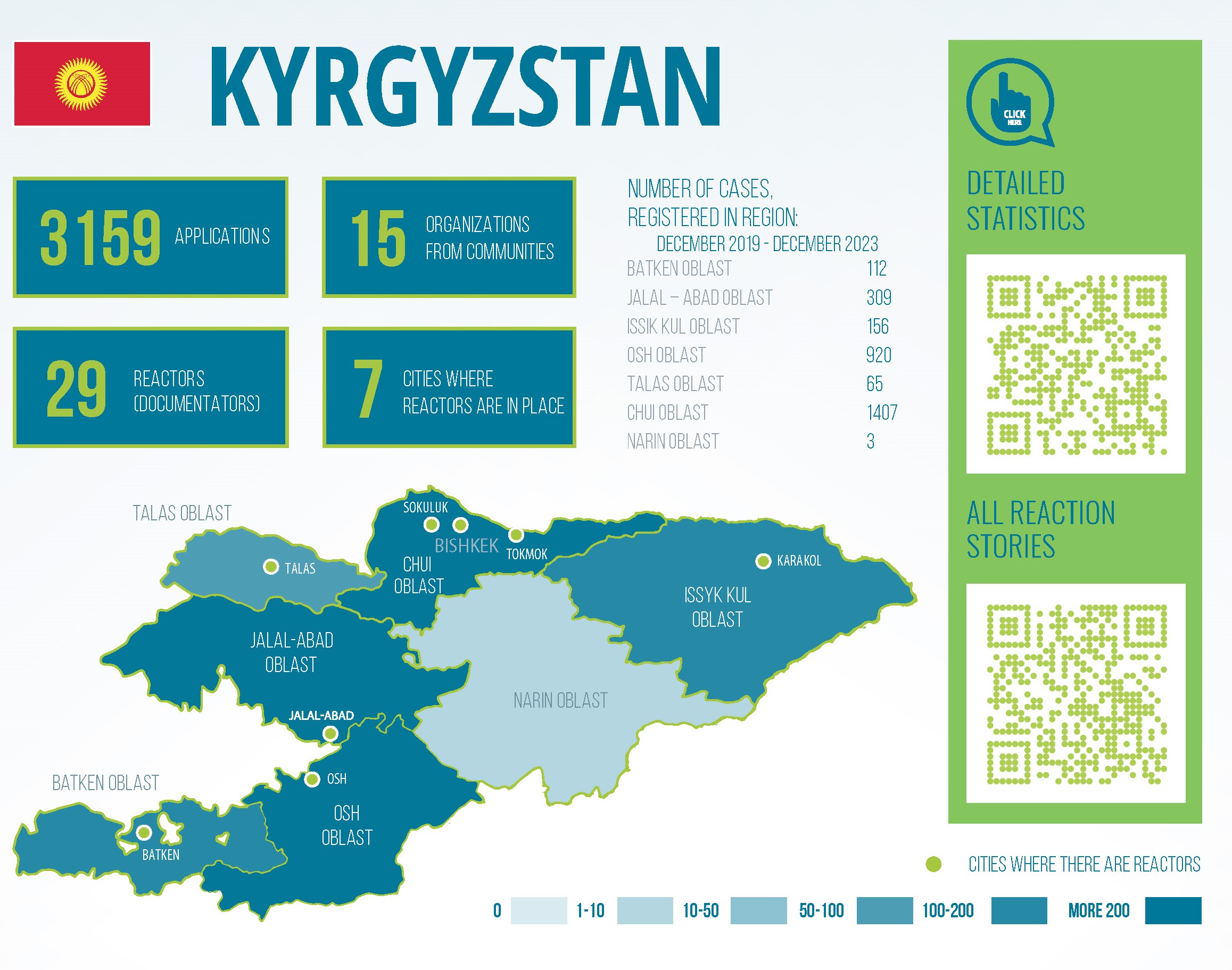Kyrgyzstan

Kyrgyzstan, like a number of other countries of Eastern Europe and Central Asia, belongs to countries with a lower middle-income level, while at the same time high activity of civil society, including nongovernmental organizations involved in the work of HIV prevention, treatment and care projects with the support of international donors.
Thanks to these factors, Kyrgyzstan became the first country in the EECA region, in which all nine HIV prevention measures among people who inject drugs, including in prisons, were enshrined at the legislative level. Also in Kyrgyzstan there is no direct legal responsibility for sex work. There are no direct or indirect prohibitions regarding LGBT people. Reforms of criminal and administrative legislation on drug control are underway. In 2019, a new Criminal Code of the Kyrgyz Republic entered into force, which expanded the list of punishments for actions related to drugs without the purpose of selling, including fines.
In 2023, Kyrgyzstan adopted “Foreign Agent Law”, a bill on foreign funding for non-governmental organizations. NGOs that receive funding from abroad will be registered as “foreign representatives,” and they will be subject to costly reporting and auditing requirements, which causes serious obstacules on service provision for most vulnerable communities.
Implementators
REAct is being implemented within the framework of the Street Lawyers projects of the Global Fund/UNDP country grant and the regional project Sustainability of Services for Key Groups in Eastern Europe and Central Asia (2019-2021). Cases are documented by 15 NGOs that participate in the Street Lawyers project and are located in different cities and regions of the country.
ECOM has been using REAct system for monitoting human rights violations in Kyrgyzstan since 2022. Eurasian Coalition on Health, Rights, Gender and Sexual Diversity is an international non-governmental association whose mission is to support the development of national LGBT communities and their activism, promote human rights, and protect the health and social well-being of gender- and sexually-diverse people.
REActors
29 REActors represent 15 NGOs located in different cities of the country in 7 regions of the country. REActor travel to cities and towns of the region in order to collect information and provide services to clients.

